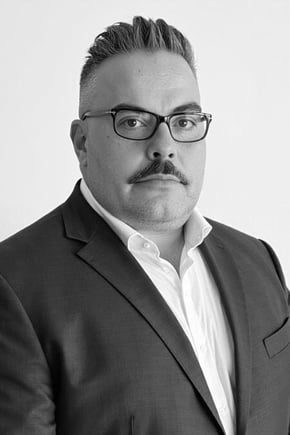Founder-led businesses are the heartbeat of innovation and resilience. Built on passion, vision, and sheer determination, these businesses are responsible for some of the most remarkable success stories in modern industry. Yet, as we reach the mid-point of 2025, the world founders once mastered is shifting. This seven part series, called the 2025 Founder-Led Report, will dive into the world of founders and share what they can do to navigate these shifts. Rapid market evolution, rising operational complexities, and an unprecedented pace of change are exposing the limitations of "founder alone" leadership models.
The qualities that fueled early growth—speed, control, deep personal investment—can become the very forces that stall it. For many founder-led businesses, this year isn't just another checkpoint; it's a turning point.
This introduction to the seven part series help founders recognize that now is the time to face the realities of scale: sustainable leadership, structured growth, and strategic delegation. Each of the upcoming parts of this series will address one of the critical areas: recognizing the signs of "founder's syndrome," defining clear roles, planning for succession, and embracing strategic support like Fractional CRO services, founders can move from day-to-day firefighting to long-term visionary leadership.
The Founder’s Dilemma: Success Becomes a Ceiling
Part Two of this series will dive deeper into the phenomenon known as Founder's Syndrome. As businesses scale, founder-driven decision-making—once a superpower—can become a bottleneck. Micromanagement, reluctance to delegate, and resistance to change quietly take root. Teams lose momentum, innovation stalls, and growth plateaus. These patterns, if left unaddressed, don't just impact revenue. They impact culture, retention, and ultimately the founder's legacy.
Recognizing these patterns early is critical. It’s not about losing control; it’s about expanding your impact through others.
Strategic Planning for Founder-Led Businesses
Part Three of this series will dive deeper into highlighting why Founder's should view strategic planning, structure, and clear sales direction are essential. A Fractional CRO brings fresh perspective and targeted expertise, helping businesses break free from overreliance on one leader and move confidently toward sustainable goals.
Agile Growth Strategies for Founder-Led Companies
Part Four of this series will dive deeper into highlighting why staying nimble is the lifeblood of every founder-led company. When markets shift overnight and opportunities vanish just as quickly, being able to pivot—without hesitation—sets true leaders apart. Innovation happens when you combine sharp vision, decisive action, and the willingness to test bold ideas.
Succession Planning: Secure the Legacy, Strengthen the Future
Part Five of this series will dive deeper into Succession planning for Founders. Succession isn’t about leaving—it’s about leading differently. Planning early ensures that the founder’s principles, vision, and momentum survive leadership changes. It de-risks the future, stabilizes teams, and reassures investors, employees, and customers.
A structured, thoughtful succession plan supported by external expertise—like a Fractional CRO—makes transitions smoother, fairer, and more strategic. It transforms leadership change from a risk into an advantage.
Clear Roles: The Foundation for Sustainable Growth
Part Six of this series will explain why (and how) clear roles boost business growth and efficiency. Without clear roles and accountability, businesses breed confusion and inefficiency. In founder-led and family businesses, blurred lines between relationships and responsibilities can derail growth and erode trust.
Structuring teams with defined ownership, decision rights, and performance expectations accelerates execution, protects culture, and sets the foundation for succession. This clarity isn't just operationally smart—it honors and protects the founder’s original vision.
The Strategic Role of a Fractional CRO
A Fractional CRO provides a bridge between founder vision and scalable execution. They bring:
-
External objectivity
-
Sales and revenue expertise
-
Leadership development frameworks
-
Process and operational discipline
They allow founders to stay close to mission and innovation while trusting day-to-day operations to experienced hands. Fractional support adapts to business needs—delivering critical leadership without long-term, full-time commitments.
Why 2025 Demands Action
This is not a "wait and see" moment.
Competitive dynamics are shifting faster than ever. Private equity pressures are increasing. Talent expects clear leadership and growth pathways. Businesses that fail to systematize and scale leadership will be left behind by those that do.
Founder-led businesses have an opportunity to redefine what sustainable success looks like. By embracing strategic structure, empowering leadership teams, and investing in external partnerships, founders can drive growth with more clarity, energy, and resilience than ever before.
The Path Forward
Up next is Part Two of the seven part series called The Founder-Led Report. That next part will dive deeper into the phenomenon known as Founder's Syndrome.
If you’re ready to not just protect your legacy but expand it—to build a business that thrives without being dependent on your daily oversight—this journey is for you.
Let's move forward, together.
Stay tuned for the rest of this series as we dive deeper into each critical area.



